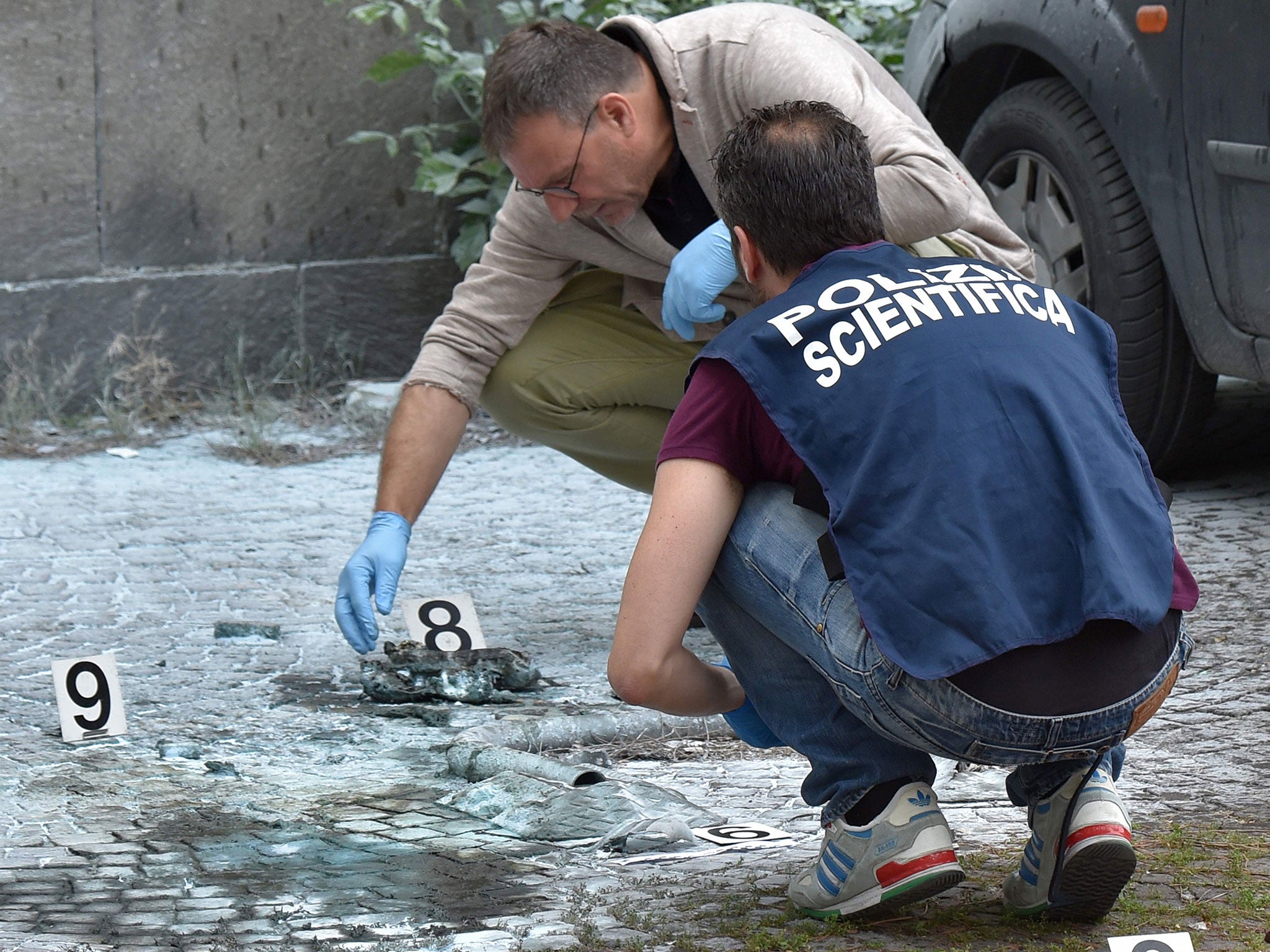Rome explosion: Italian police respond to blast outside post office
Police suspect anarchist groups of responsibility following similar attacks

Your support helps us to tell the story
This election is still a dead heat, according to most polls. In a fight with such wafer-thin margins, we need reporters on the ground talking to the people Trump and Harris are courting. Your support allows us to keep sending journalists to the story.
The Independent is trusted by 27 million Americans from across the entire political spectrum every month. Unlike many other quality news outlets, we choose not to lock you out of our reporting and analysis with paywalls. But quality journalism must still be paid for.
Help us keep bring these critical stories to light. Your support makes all the difference.
An explosion has rocked a post office in Rome in what police believe is a "demonstrative act".
No injuries were immediately reported after the blast, which damaged a nearby car and sparked panic among workers at the Poste Italiane office.
Investigators believe it may have been caused a device set off by a timer, Il Giornale reported, but the target was unclear.
The homemade device was placed between cars parked in Via Marmorata, which links the River Tiber with the Pyramid of Caius Cestius in central Rome.
Massimo Improta, a police official, said the bomb was constructed using two bottles of flammable liquid inside a plastic container
Police told reporters there was no immediate suspicion of Islamist terrorism, with officers believing the blast was a "demonstrative act, showing that it could be done"..
Suspicion turned to anarchist groups, which have carried out similar firebombings in the past.
The perpetrators were suspected of links to an arson attack in a warehouse on the southern outskirts of Rome.
The post office, an imposing Fascist-era building that is often studied by architecture students, remained opened throughout the incident.
Italy's postal service has previously been targeted by anarchists because it owns Mistral Air, which flies migrants to controversial identification and expulsion centres.
A similar explosive device that did not detonate was found outside a post office in Turin in November.
Security in the Italian capital has been heightened following a series of Isis-linked terror attacks across Europe, with the terrorist group singling out Rome as a symbolic target in its propaganda.
Letter bombs have also been found in Paris, Germany and Greece after being sent by a Greek anarchist group to EU ministers and financial institutions.
Subscribe to Independent Premium to bookmark this article
Want to bookmark your favourite articles and stories to read or reference later? Start your Independent Premium subscription today.
Join our commenting forum
Join thought-provoking conversations, follow other Independent readers and see their replies
Comments